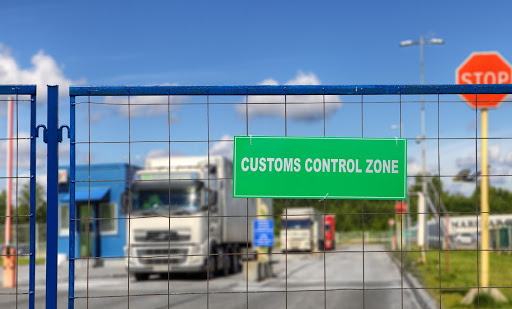How will Brexit affect logistics?
At the start of 2021, the Brexit transition period came to an end altering the relationship between the UK and Europe, and changing the way goods are transported between the two areas. But despite the seemingly endless talks between the UK and the EU, the actual impact Brexit has had on how the logistics industry operates is still far from clear.
Below, we explain the predicted impact Brexit will have on European logistics and outline the considerations UK businesses that ship to and from the EU will have to bear in mind when it comes to import and export logistics in the future.
How will Brexit impact logistics?
With Brexit affecting borders, transportation and multiple aspects of how goods are transported every day, there are many different changes that will alter the way the logistics industry functions. Not only that, but the impact of Brexit could lead to more time needed for processes that were previously quicker and more money spent on tasks that used to be cheaper.
Changes to logistics caused by Brexit may include:
- Delays at borders
- Increase to fuel price
- Increase to the cost of wages
- Longer delivery times
- More custom checks and inspections
- Reduced trade
- Stricter border control

How will Brexit affect import and export logistics?
For logistics companies, an understandable concern with the introduction of Brexit is how it could impact how import and export logistics is carried out. Transporting goods to other countries in the EU is something that happens every day, and if a period of adjustment to Brexit could mean restrictions to this process, logistics companies throughout Britain may be significantly affected.
When it comes to import and export logistics, UK businesses need to bear in mind:
Certification
Depending on the goods being transported, you may need a specific export licence as the EU and individual companies require clearance before certain items enter. For example, consumables would need an export health certificate, undergo additional checks and be entered into the EU through a specified border inspection post (BIP).
Commodity/tariff codes
For exporting goods to the EU, specific codes need to be shown on custom documents. The Harmonized Commodity Description and Coding System has all of the codes you may need to move goods from the UK to the EU, so you will need to make sure that you’re using the correct codes or face additional tariffs.
Documentation for transport
With the UK no longer being a part of the EU, the transportation routes may be changed and more limited than they were before. Drivers will also need to carry export licences, an ATA Carnet document for moving goods out of the UK temporarily and a TiR Cabinet document if goods are being moved in a sealed compartment.
As crossing the border in and out of the EU as a non-EU country has become more restricted, drivers will be forced to provide documentation regarding their vehicle such as insurance, tachograph charts, confirmation that the vehicle is approved for crossing into the EU and details for how the vehicle is secured with a thorough checklist provided.
EORI numbers
If they don’t already have one, UK businesses will be required to obtain a UK Economic Operator Registration Identification (EORI) number from HMRC to trade goods to and from the UK. They will also need to obtain a UK EORI from the custom authority of the European country they trade with to move goods in and out of the EU.
Likewise, businesses in the European Union will need to apply for a UK EORI to transport goods to and from the UK.
Product labelling
It’s always true that products should be labelled correctly, but with Brexit impacting logistics, items need to reflect that they’re coming from the UK – a now third country location – and not the EU. Due to this, goods from the UK should no longer be given an EU label.
VAT
Due to Brexit, the price of shipping has increased, with import VAT being charged on items valued above £135, but exported goods being given zero-rate VAT. For UK businesses, it’s important that this is understood and they decide a way to account for this increase in price. Options include giving customers the chance to pay VAT and duties at the point of purchase or charging the same price but leaving customers to pay VAT and duties when their items arrive.
